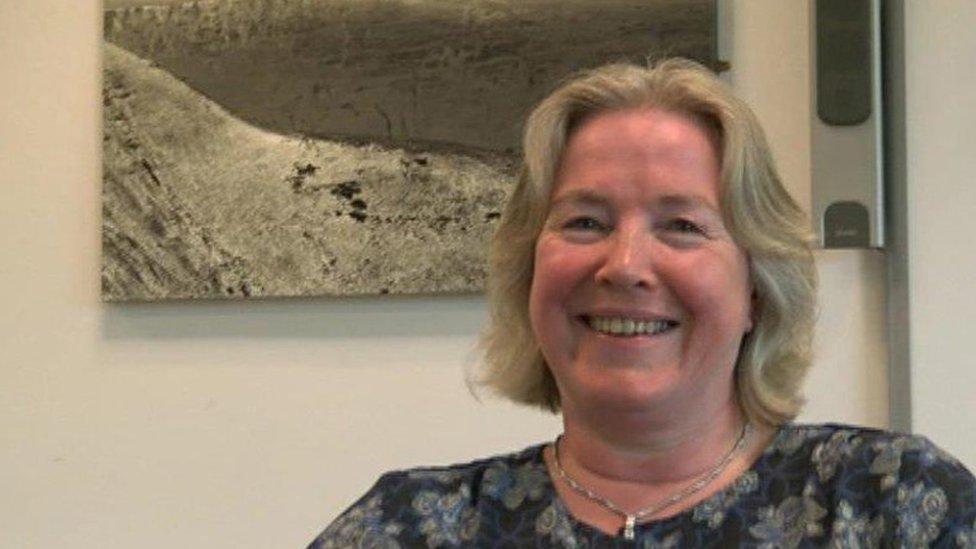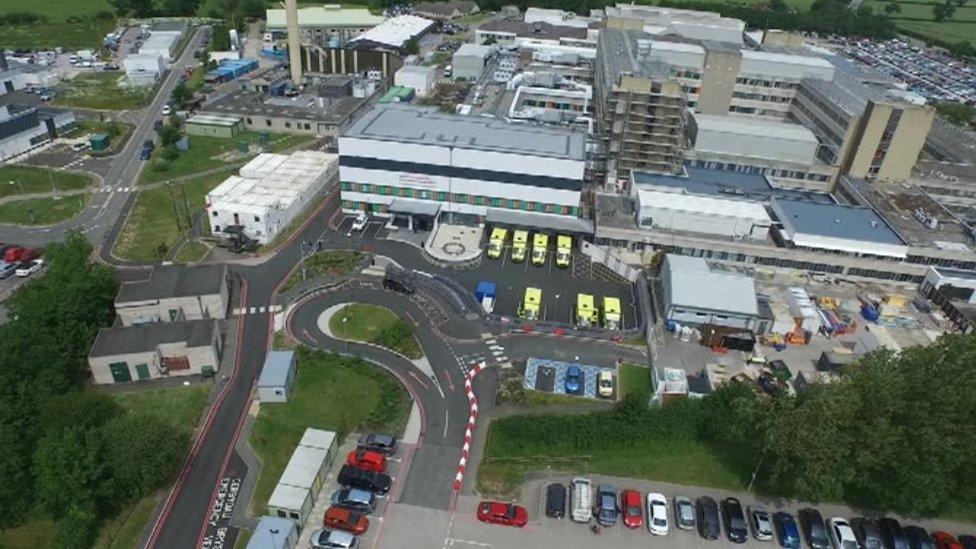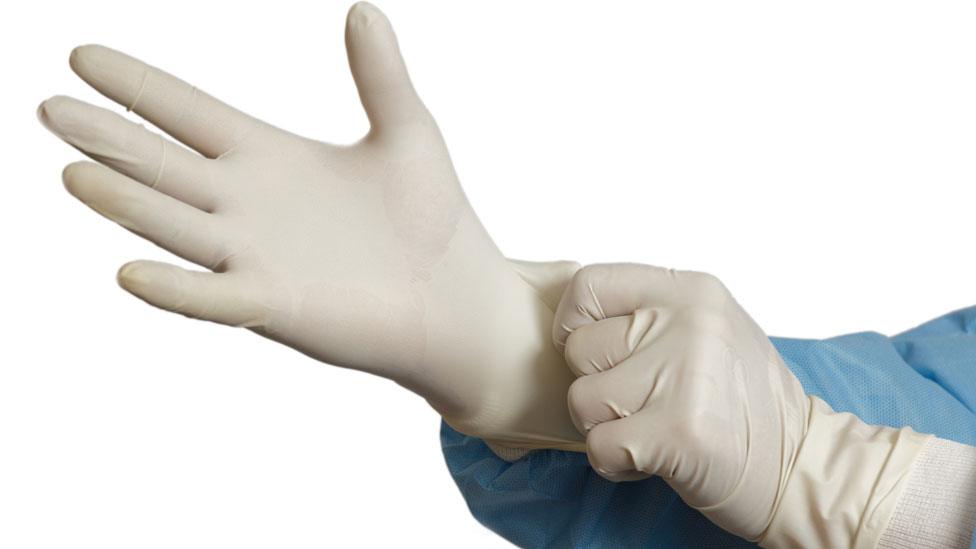Patients must be 'eyes and ears' of NHS inspectors plea
- Published
HIW inspector Gerallt Jones talks to patient Mac Rawlinson at a ward in Cardiff
More patients need to act "as the eyes and ears" of NHS inspectors as a watchdog looks to prioritise its work.
Healthcare Inspectorate Wales - which inspects GP surgeries and hospitals - is concerned too few people understand what it does.
It said that could make it more difficult to spot patient safety risks, at a time of budget pressures.
Chief executive Dr Kate Chamberlain said patients' voices were "fundamental".
It now wants more patients and relatives to flag up issues and more members of the public to become "lay" inspectors.
The watchdog, which works out of Merthyr Tydfil, can launch surprise inspections in hospitals wards and surgeries, either as part of a rolling programme or acting on intelligence.
An NHS inspector calls at the NHS
It also looks more widely at standards and potential risks and keeps an eye on care offered by GPs, opticians, dentists and even tattoo removers and laser use in beauty salons.
Recent work has included highlighting "fragile" eye care services in hospitals and a lack of understanding of learning disability in residential facilities.
But HIW is facing budget cuts, which has led to it making "difficult decisions" about priorities.
HIW's current budget is £3.5m, but that is due to reduce by £82,000 in 2018/19 and by a further £189,000 in 2019/20.

More stories which involve the work of NHS inspectors:
HIW has a wide scope - which includes 520 dental surgeries, 10 hospices, 50 community mental health teams and any beauty salon which uses laser treatment, as well as NHS and private hospitals.
It can also look at specific serious cases and issues such as deaths in prisons.
In the face of budget cuts, it is now looking to re-focus its work to make sure it can stay on top of what the NHS is doing - and still deliver as the health service changes.
BBC Wales was given a look "behind the scenes" at HIW to get a better understanding of what it does.
In a new three-year strategic plan, HIW said it needs to:
Make inspection reports easier to read and be clearer about what actions it takes when an organisation falls short of standards
Listen more to experience of patients and their families to deliver better "intelligence" so that it can focus inspections on the areas of greatest risk to patients safety
Undertake more "thematic" investigations looking at a particular issue, such as drugs support services, across Wales
Develop new inspection methods to reflect how the NHS is looking to move more care into the community and develop more preventative work. It could mean more joint inspections with the Care Inspectorate Wales
Encourage more members of the public to become involved in its work and apply to become "lay reviewers" on inspection teams


Dr Kate Chamberlain said HIW needs to be visible but also respond to a changing healthcare system
Dr Chamberlain said: "It's really important we focus on making as much impact as we can. We need to make sure everything we do counts.
"We're small, covering a broad range of services, we have to make the most to reach as many people as possible."
"The important thing is how the system evolves. Now clearly part of what is coming through is this move towards integrated care, care closer to people's homes.
"It's a challenge for us because we'll have to change how and where we inspect."
- Published22 February 2018

- Published29 September 2016

- Published27 September 2017

- Published5 October 2016

- Published27 April 2018
